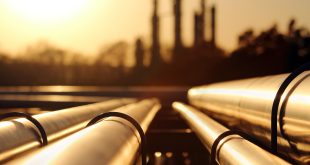Yokogawa has begun work on an inter-industry collaborative study project for the achievement of carbon neutrality at an industrial complex in the Goi district of Ichihara City in Chiba Prefecture. The study will examine the feasibility for collaboration by companies in different industries in a carbon recycling business and will involve surveys on the current status of the energy balances of their industrial plants and the capture and reuse of the carbon dioxide (CO2) emitted by them. The goal for this project is to lay the groundwork for a business that will aim to achieve net-zero CO2 emissions for the entire industrial complex by 2050. This study has been commissioned by the New Energy and Industrial Technology Development Organization (NEDO).

In line with the international community’s efforts to address climate change, the Paris Agreement was adopted at the 21st Conference of the Parties to the United Nations Framework Convention of Climate Change (COP 21), with the signatories agreeing to reduce greenhouse gas emissions to virtually zero by the second half of this century. According to an International Energy Agency (IEA) report, carbon capture, utilisation and storage (CCUS) technology that captures CO2 emissions from power and other industrial plants as well as CO2 in the atmosphere will account for approximately 15% of the cumulative CO2 reduction needed to achieve CO2 net-zero emissions by the year 2070. Japan has declared that it will achieve carbon neutrality by 2050. According to an announcement by the Ministry of Economy, Trade and Industry in December 2020, carbon recycling plays a key role in Japan’s Green Growth Strategy, and innovation in this field through public-private partnerships is encouraged.
After this study was commissioned by NEDO in February, Yokogawa contacted and requested the cooperation of companies in the Goi district and its neighbouring districts that operate plants with high CO2 emissions, and also conducted a survey of CCUS technologies and other subjects. From this month, Yokogawa will begin collaborating with these companies to examine the feasibility of a carbon recycling business, focusing on the three aspects of the effective use of materials and energy, CO2 capture and utilisation, and hydrogen management.
For this study, Yokogawa will leverage expertise held throughout the Yokogawa Group, including that of the subsidiaries Yokogawa Solution Services Corporation and KBC Advanced Technologies Limited. Specifically, Yokogawa will make use of the knowledge of manufacturing processes that has been cultivated through work for many different types of plants both in Japan and overseas, expertise in the improvement of processes and energy efficiency for single sites as well as the integration of multiple industrial sectors’ sites, virtual power plant technologies that enable the control of supply and demand at the regional level, regional energy management systems that optimise control based on supply and demand, and simulation technology that supports the execution of optimal production planning.
By cooperating with partners in the survey across multiple industries, Yokogawa is aiming to achieve net-zero CO2 emissions for the entire community, and contribute to the achievement of a carbon-neutral society that is one of the company’s “Three goals” for sustainability.
 Instrumentation Monthly Test | Measurement | Control
Instrumentation Monthly Test | Measurement | Control



